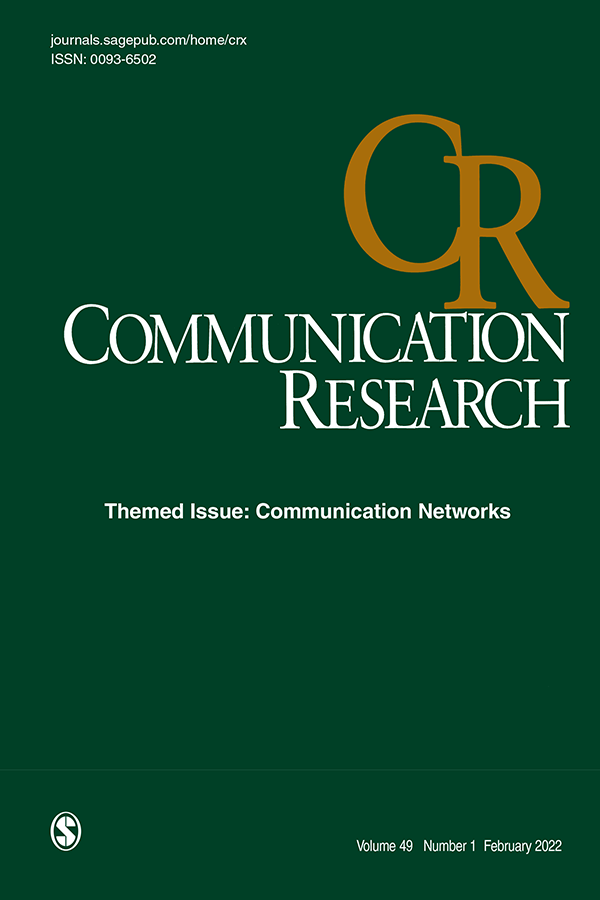随着时间的推移,语境特征如何塑造煽动性:电视选举辩论中政治煽动性的演变和决定因素分析(1985-2019)
IF 3.2
1区 文学
Q1 COMMUNICATION
引用次数: 3
摘要
人们经常对政客们越来越多地使用不文明手段表示担忧。然而,很少有纵向实证研究来测试政客对不文明的使用是否真的在增加,也很少有人知道影响不文明盛行的决定因素。本研究分析了不文明行为随时间的变化,并提出了一个理论驱动的不文明行为诱导决定因素的多层框架。比利时35年间24场电视选举辩论中4102次演讲行为的定量内容分析 年(1985-2019)表明,政客的不文明行为并没有增加,而是以一种波动的模式发生,这些年来起起落落。我们对所研究的决定因素的分析证实,不文明行为具有高度的情境特异性。特别是,不文明程度既受政客的特征影响,如民粹主义、在职和性别,也受辩论决定因素影响,如讨论的话题、同时辩论的政客人数以及辩论中先前发生的不文明事件。本文章由计算机程序翻译,如有差异,请以英文原文为准。
How Contextual Features Shape Incivility Over Time: An Analysis of the Evolution and Determinants of Political Incivility in Televised Election Debates (1985–2019)
Concerns are frequently raised about politicians’ increasing use of incivility. Yet, there is little longitudinal empirical work testing whether politicians’ use of incivility is actually rising, and little is known about the determinants that affect the prevalence of incivility. This study analyzes incivility over time and proposes a multi-layered framework of theoretically-driven incivility-inducing determinants. A quantitative content analysis of 4,102 speech acts in 24 Belgian televised election debates over the course of 35 years (1985–2019) shows that politicians’ incivility did not increase but occurs in a volatile pattern with ups and downs over the years. Confirmed by our analysis of the studied determinants, incivility shows to be highly context-specific. Particularly, incivility levels are affected both by characteristics of politicians, such as populism, incumbency, and gender, and by debate determinants, such as the topic under discussion, the number of politicians simultaneously debating each other, and previous incivility occurrences in the debate.
求助全文
通过发布文献求助,成功后即可免费获取论文全文。
去求助
来源期刊

Communication Research
COMMUNICATION-
CiteScore
17.10
自引率
0.00%
发文量
20
期刊介绍:
Empirical research in communication began in the 20th century, and there are more researchers pursuing answers to communication questions today than at any other time. The editorial goal of Communication Research is to offer a special opportunity for reflection and change in the new millennium. To qualify for publication, research should, first, be explicitly tied to some form of communication; second, be theoretically driven with results that inform theory; third, use the most rigorous empirical methods; and fourth, be directly linked to the most important problems and issues facing humankind. Critieria do not privilege any particular context; indeed, we believe that the key problems facing humankind occur in close relationships, groups, organiations, and cultures.
 求助内容:
求助内容: 应助结果提醒方式:
应助结果提醒方式:


